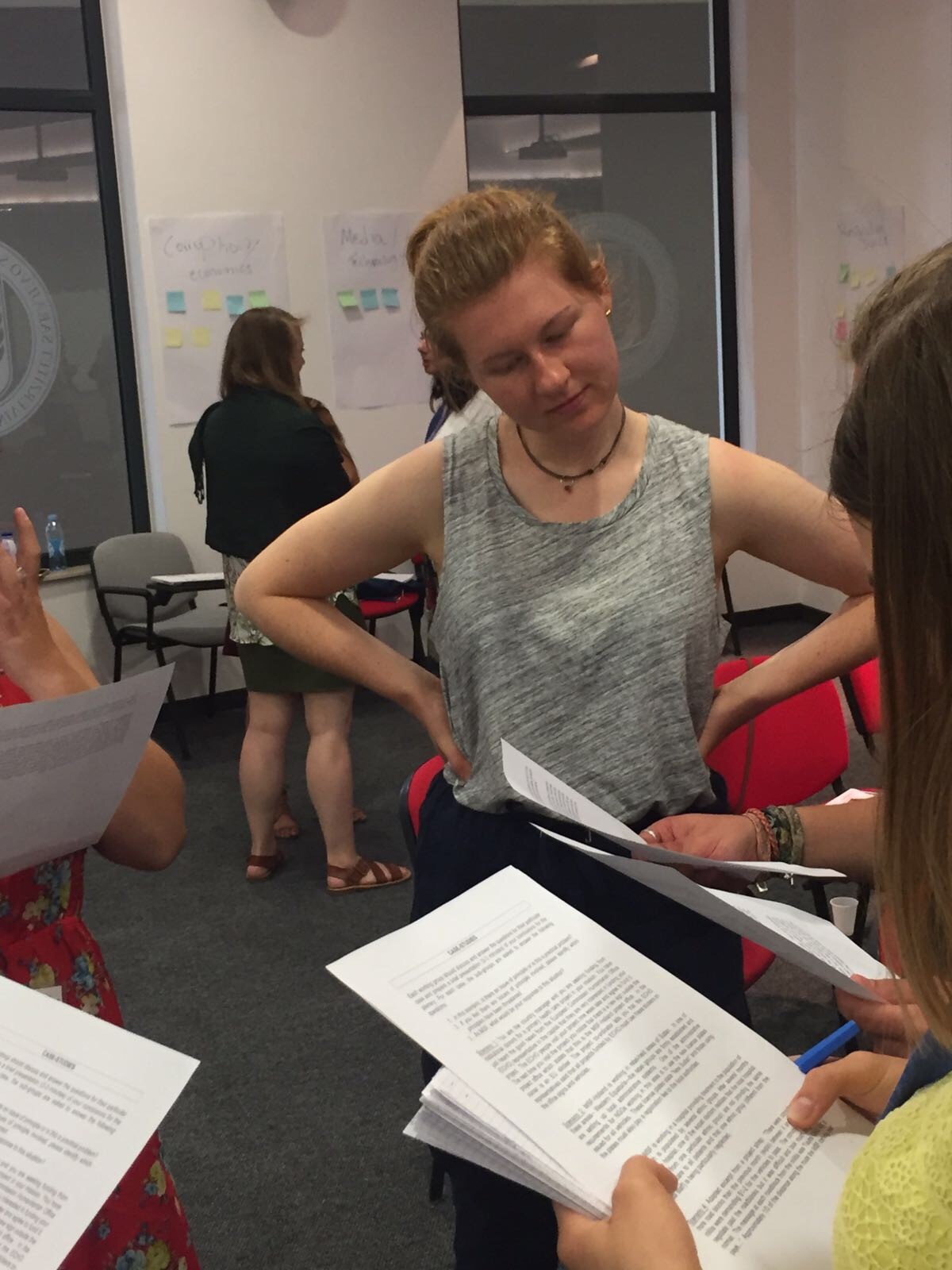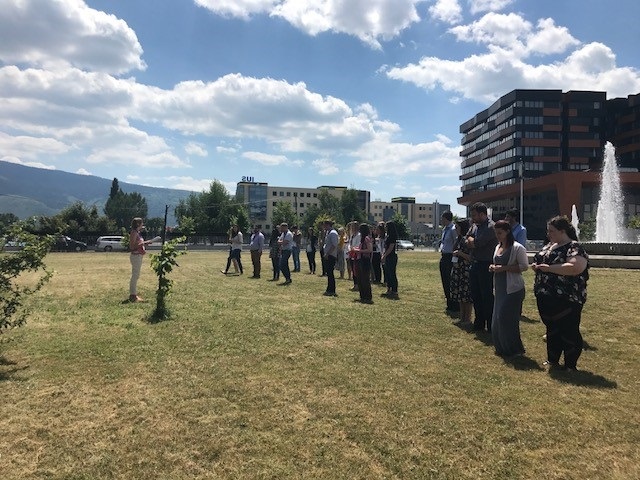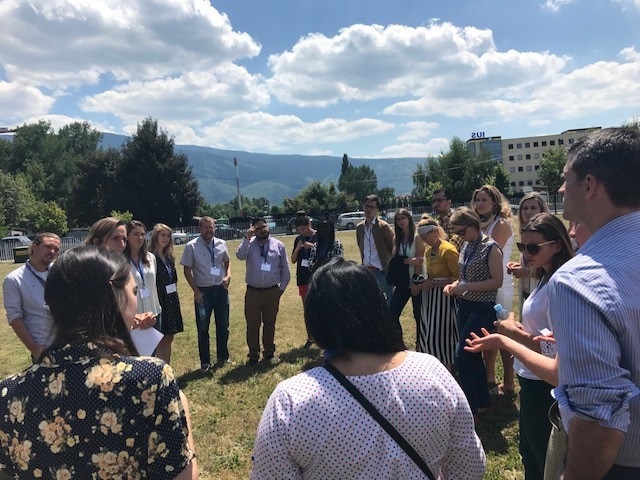By Philippa Meikle
On the morning of the second day of the Symposium, all 31 participants and staff members engaged in an exercise run by Deborah Mancini which aimed at broadening our perspectives of governance and resilience. We were each given a small biography about an individual whose role and perspective we would assume, which we were to keep private from the rest of the group. We were given the opportunity to respond to a variety of different statements, and to indicate to the group whether we agreed or disagreed with the statement according to the mindset of an individual in the role we had taken on.
We physically specified our position by moving forwards or remaining where we stood, so by the end of the exercise, our physical position was a figurative representation of the perspective we had assumed. The statements were generally quite positive, so those who stood far in front represented individuals who enjoyed a more liberating position within their society, while those who remained close to where we began represented those who were held back as a result of the position they occupied within the community and the governance situation they were experiencing.


It was very interesting to see that some of the participants who had been given the same role actually did end up placed in a very close proximity to each other, indicating that those delegates shared similar ideas about the position of that character in the given society. However, some delegates who shared a common role ended up being positioned at some distance from each other, indicating how our personal experiences and knowledge can have a dramatic impact upon the perspectives we hold about others and their position in society.
Some clear patterns emerged from this exercise, which were highly interesting to observe. Many of those who were able to progress the furthest, indicating that they were provided with the greatest amounts of opportunities in their society, felt the safest in their community and were able to exercise their rights more fully, tended to be middle-aged men who held steady employment in a stable environment. This was not surprising in the least, as most delegates agreed that this was probably an accurate portrayal of the situation in real life. Many of those left behind were those facing difficult situations, such as being unable to speak the local language, living in a refugee camp or being subject to harassment by local authorities. Most of those unable to agree with any of the statements appeared to be women, again portraying the substantial gap between the rights and opportunities experienced by men and women in many modern societies.
Deborah then asked the participants where we would stand if we were to represent our true positions in the real world. Considering the high degree of education experienced by the delegates, incredible world experiences and high mobility that enabled us to travel to Sarajevo to participate in this Symposium, one may have expected many of the participants to be quite far along. However, many of the participants come from countries that have experienced incredible amounts of conflict in recent years, leading such individuals unable to agree with many of the statements made. Additionally, factors such as gender, age and employment had a substantial impact upon whether the delegates felt as though they were given the same opportunities and enjoyed the same degree of rights as others.
In this manner, the exercise was highly educational in opening our eyes to the importance of considering situations from others’ perspectives, as well as exposing us to the harsh realities of those living in conflict and post-conflict countries. While social factors clearly play a major role in determining the ability of an individual to feel safe, valued and equal in their society, a variety of other factors also have a substantial impact, such as economic, environmental and political, and it is not easy to make broad generalisations about the impact of governance upon one’s circumstances.


